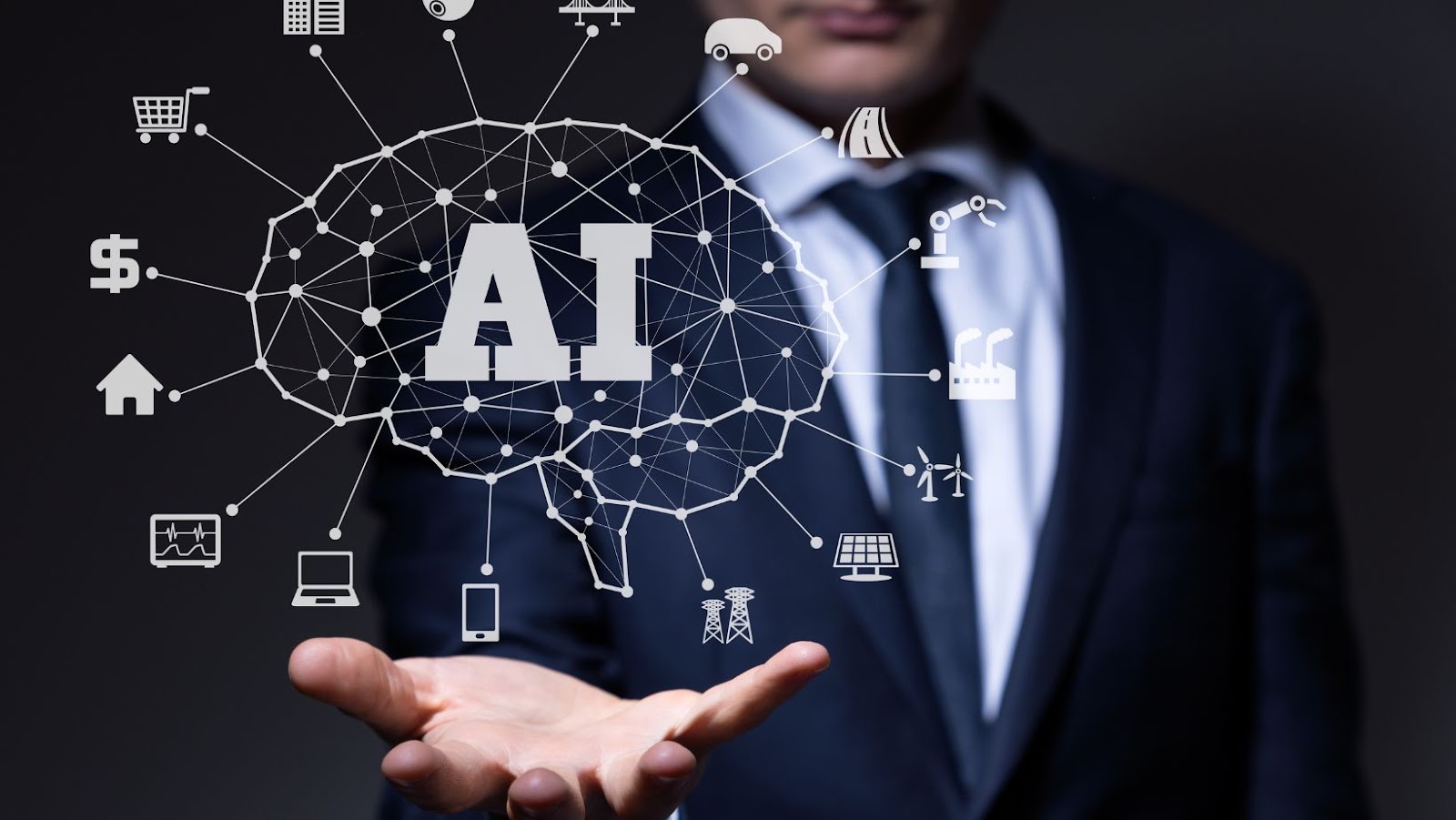
Tunisian AI startup InstaDeep recently raised $100M in Series B funding to fuel its innovative artificial intelligence technology. InstaDeep’s groundbreaking AI technology has many potential applications, from real-time automated customer service chatbots to self-driving cars.
In this article, we will explore the potential applications of InstaDeep’s AI technology and the positive implications that it could have on businesses and individuals alike.
Tunisian AI startup InstaDeep raises $100M in Series B
InstaDeep harnesses the power of artificial intelligence (AI) for many potential applications. Leveraging specialized algorithms and advanced machine learning (ML) models can provide insights on complex projects faster and more accurately than traditional methods.
InstaDeep can access data from millions of consumers worldwide with offices in London, Paris, Dubai, and Beijing and many other global cities. Their teams work closely with customers to develop unique AI solutions tailored to their diverse needs. InstaDeep’s range of products are suitable for corporate or personal use; they enable organizations to utilize AI-driven technologies across a wide range of industries including healthcare services, auto-motive services and customer experience management.
Their AI technology can be used for automated customer service bots and intelligent chat applications; it can also be employed for natural language processing tasks such as text recognition, voice biometrics and virtual assistants; other applications are visual understanding operations like facial recognition or product segmentation. Furthermore, their predictive analytics may assist with predicting consumer trends using dynamic databases. The possibilities are truly limitless.
Recent funding round
InstaDeep is a global AI company specializing in production-level, deep reinforcement learning (RL) and other applications of artificial intelligence, machine learning and data science to create groundbreaking solutions. With headquarters in London, InstaDeep has been developing technology worldwide since 2017.
In April 2021, InstaDeep closed a $17 million funding round with the participation of Current Global and existing investors Silversmith Capital Partners, Aquiline Technology Growth, NGP Capital and Entrepreneur First. The money raised will accelerate the development of InstaDeep’s AI technology for use in healthcare, finance, energy and smart cities.
While it is still early in their development process, InstaDeep has shown potential applications for their technology across various industries. Potential applications of InstaDeep’s AI technology they have already tested include recommender systems analysis, facial recognition analysis and automated marketing optimization; all promising paths toward further development.

Applications of AI Technology
Tunisian AI startup InstaDeep recently raised $100M in Series B, a testament to AI technology’s potential.
AI technology has many potential applications, most notably in the healthcare, engineering and finance industries. In this article, I will discuss some of the potential applications of InstaDeep’s AI technology, including its potential in the healthcare and engineering.
Autonomous Driving
Autonomous driving, also known as self-driving and driverless cars, is a rapidly emerging application of artificial intelligence technology. InstaDeep’s AI solutions enable the rapid development and deployment of autonomous vehicles. These solutions include object detection and classification software, motion control, motion sensing, navigation and decision making.
AI-enabled autonomous vehicle systems can learn from experience to navigate safely in ever-changing environments. This learning capability allows vehicles to make decisions about navigating through obstacles or unknown terrain and adjust their speed and direction based on changing conditions such as weather or traffic flow. Finally, AI applications provide robust safety features that detect any potential incidents before they occur, preventing an accident from occurring in the first place.
The result is an autonomous vehicle system that constantly learns and improves its performance by gaining experience over time – leading to safer roads and a transformed transportation experience for all of us!
Natural Language Processing
Natural language processing (NLP) is an artificial intelligence technology that turns natural language input into structured, machine-readable data. NLP relies on algorithms for recognizing patterns in words and phrases, and training machines with real-world textual data to enable computational understanding of everyday language. NLP applications can potentially improve efficiencies and deliver high accuracy results when used across voice and text user interfaces.
InstaDeep’s AI technology leverages NLP to deliver reliable results in understanding raw text faster and accurately. InstaDeep facilitates complex tasks such as machine translation, dialog systems, semantic role labeling, query understanding, document clustering and extraction, context-based parsing and more. The AI platform also enables users to quickly create domain specific models that are expertly built using best data practices. It ensures robust features combined with deep learning techniques allowing applications to achieve expected outcomes quickly while using a low cost approach.
Image Recognition
Image recognition is an AI technology that is highly applicable in many areas. InstaDeep’s image recognition models use deep learning algorithms to recognize objects, content, and people in images and videos. This technology can be used for facial recognition, object identification, scene analysis and more.
Facial recognition is an AI application that leverages deep learning algorithms to identify unique characteristics of a face from a collection of faces or images taken from unknown scales and angles. By training data sets with millions of photos to recognize differences among different people, the accuracy rate for facial recognition software has significantly improved over the years.
Object identification is also an important application of image recognition technology empowered by deep learning algorithms such as convolutional neural networks (CNN). InstaDeep’s object identification system detects objects in images with extreme accuracy and speed by recognizing the intrinsic components that constitute an object – such as shapes, textures, colors and boundaries – rather than looking at each pixel. Their unique approach utilizes multiple network architectures to ensure all parts of their model are hardened against adversarial attacks from malicious actors.
Scene analysis uses computer vision abilities combined with machine learning algorithms to understand what happens in a specific environment based on data collected through a digital camera or other devices like LiDAR (Light Detection And Ranging). An example of this would be systems used for automated surveillance applications such as license plate detection on cars passing by or tracking suspicious activities in enclosed spaces like offices or buildings. InstaDeep’s advanced models and comprehensive toolbox allow users to quickly acquire helpful insights from any scene or video footage.

Cybersecurity
The rapid digital transformation in recent years has led to an increased dependence on data and the introduction of new cyber-security threats. AI technology has the potential to provide solutions to these threats and has been applied to build secure and trustable systems. InstaDeep’s AI technology is specialized for identifying malicious behavior, such as attacks from hackers, preventing unauthorized access, and analyzing emerging trends in cyber threats.
AI-based intrusion analysis systems are designed to identify abnormal patterns of access activity and intrusions to detect any unauthorized data manipulation or theft attempts. These systems can also work with natural language processing (NLP) algorithms to classify text as malicious or benign. Concurrently, AI models can help automatically sense changes in environment configurations and policies that may jeopardize security protocols.
InstaDeep’s AI technology also offers effective ways for responding against security incidents thanks to its advanced ability of general purpose computing on graphics processing units (GPUs). With the help of GPUs, InstaDeep’s machine learning capabilities are optimised for deep learning-based detection capability using visual recognition algorithms suitable for all types of digital assets including text, images or documents for purpose built classification tasks related to monitoring network activity or suspicious behavior.
Benefits of AI Technology
InstaDeep is a Tunisian AI startup that provides businesses with AI and data science solutions. Its technology is used in various applications, including natural language processing, computer vision, machine learning, and predictive analytics.
In this article, we will discuss the potential benefits of AI technology and how companies can use it to reach their goals.
Improved Efficiency
AI technology has the potential to help companies and organizations improve their efficiency. AI can allow the automation of mundane tasks, freeing up resources for more important ones and helping to optimize processes that people cannot do. InstaDeep’s AI-based systems learn through experience to become more precise as they are used over time. This artificial intelligence technology can reduce operating costs significantly while helping organizations reallocate resources more effectively to enhance productivity.
InstaDeep’s AI technology can also provide organizations with actionable insights by collecting and analyzing data. This means that companies and organizations can better determine which areas need attention, allowing them to make informed decisions faster than ever before. The insights this type of artificial intelligence technology provides can help companies maximize their customer service experience and reduce turnaround times in customer service processes for improved efficiency.
In addition, AI-powered technologies can monitor operations 24/7 to identify problems as soon as they occur, allowing for faster response times when addressing issues or making corrections. This allows businesses to increase their application uptime and provide users with a seamless experience. Furthermore, automated support systems can identify areas needing improvement or provide real-time feedback on customer satisfaction levels. These improvements increase efficiency regardless of the size or complexity of a business or organization’s operations.
Increased Accuracy
The potential applications of InstaDeep’s AI (Artificial Intelligence) technology can benefit various sectors. Incorporating AI into existing products and processes increases accuracy in organizations, institutions and industries. Supported by numerous datasets, neural networks can learn patterns from existing data sets or real-world scenarios and use these patterns to better predict or classify previously intangible elements.
For example, AI-enabled facial recognition technologies can distinguish between thousands of images of different faces and accurately determine their identity with high accuracy. This technology would benefit the security industry by providing a quicker way to identify people and detect objects such as guns in public areas. In addition, AI can be used in the healthcare sector for accurate detection and diagnosis of diseases, helping doctors do their jobs more accurately with fewer mistakes.
Moreover AI can help organizations utilize customer data more effectively and provide more personalised services by monitoring customer trends across relevant categories and making predictions based on this information. It can also be used for carrying out risk analysis for financial organizations using machine learning algorithms which can spot fraudsters from its large data set with very high accuracy. The combination of AI’s capabilities like machine learning techniques, deep learning approaches helps boost operational efficiency for an organization through better decision making abilities on a larger scale which is fast becoming a necessity everywhere due to the increasing scope of digital businesses today.
Reduced Costs
The application of AI technology developed by InstaDeep has the potential to greatly reduce costs, help businesses scale quickly, and make operations more efficient. AI can automate customer service, administrative tasks and daily operations. Companies integrating this technology can benefit from cost savings since they no longer have to hire additional personnel or utilize expensive software or hardware. They also gain efficiencies from automated processes that don’t require learning curves or manual workarounds – allowing employees to focus energies on other productive activities.
Additionally, there is potential for a reduction in operational costs because businesses can cut back on operational expenditures. AI-based systems can offer detailed advancements in forecasting and predictive analytics, making it easier for companies to optimize their inventory management and cost savings procedures. For instance, they can build models that allow businesses to purchase raw materials in large bulk orders which may be less expensive due to discounts offered by vendors; they can also use these same models while setting competitive yet profitable pricing for the company. Businesses have access to more accurate predictions of customer orders, enabling them to better manage stock levels, reduce wastage/expiry of goods, and ensure customers are supplied with desired items when needed.
With AI technology at their disposal, organizations become stronger in managing resources and reducing costs associated with procuring materials or labor used throughout production.

Challenges of AI Technology
While Tunisian AI startup InstaDeep has raised $100M in Series B, several challenges remain when using AI technology.
Artificial intelligence can be used in various applications such as healthcare, robotics, autonomous vehicles, and facial recognition, but there are also potential downsides.
This article will explore the challenges that come with AI technology.
Data Privacy
Data Privacy is one of the most critical aspects of AI technology. As AI technology advances, companies and organizations must take extra precautions to ensure data privacy remains intact to protect user information. Any data released to the public should be done securely, without any potential malicious entities having access to said data. Companies must also remain vigilant about how their data is being used—by only allowing their trained models to access it and not releasing any information that could identify an individual or group.
Additionally, regular data encryption and security checks should be conducted to ensure the integrity of user information. Ultimately, organizations and companies utilizing AI technology must recognize their responsibility regarding the privacy of sensitive consumer data—they must take extra steps in protecting this information while still striving for innovation and growth.
Job Losses
AI technology, like InstaDeep’s, has the potential to revolutionize multiple industries and has the power to automate traditionally manual processes. However, this automation could lead to many job losses that threaten people’s employment. This poses a major ethical dilemma: how do we balance the potential benefits of AI with its disruptive effect on employment?
AI can assess data faster and more accurately than humans, meaning that many jobs requiring data analysis or decision-making can be automated. With this in mind, AI-powered automation can have a dramatic effect on workforces around the world. By implementing AI technology, companies can drastically reduce their workforce size and still meet their performance targets. This could cause issues for workers in sectors such as finance and retail who may suddenly find themselves without jobs due to increased automation and reduced demand for labor.
Therefore, it is important to consider the impact of AI technology on unemployment when deciding whether or not to deploy it within an industry or company. Companies must also consider how they can mitigate any potential job losses before implementing an automated system. One possible solution is retraining programs that ensure employees impacted by automation can transition into new roles within the same industry or adjacent fields. In doing so, organizations must commit to ensuring an ethical implementation of artificial intelligence while minimizing any unexpected negative impacts on employment levels to fully use its potential benefits.
Unforeseen Consequences
One of the biggest challenges of using artificial intelligence (AI) technology is dealing with the unforeseen consequences it may bring. Although AI has the potential to revolutionize entire industries, drawbacks and risks come with using this technology.
Without proper oversight and implementation of safety protocols, unexpected outcomes—including errors or biases — can emerge from AI projects. Because of this, organizations should take caution when deploying AI models and consider potential risks before implementing them into real-world applications. Even though the need for AI advancement is increasing rapidly throughout many industries, it is important to take a step back and consider all possible negative implications by thoroughly testing any proposed algorithm before being used.
Organizations must also be aware that companies working on AI innovation could face civil and criminal penalties for negligence in protecting people’s privacy rights or data security issues related to data protection laws such as the General Data Protection Regulation (GDPR) in Europe. Companies must build safeguards to responsibly manage personal data while following decisions made by regulators enforcing these laws specific to a region or industry.
Conclusion
In conclusion, InstaDeep’s AI technology represent a powerful tool for researchers and businesses to leverage to further develop their expertise and products. Whether it is in the context of medical research, financial analytics or industrial process optimization, deep learning has applications in almost all fields. Containing an unprecedented combination of advanced algorithms, InstaDeep’s AI technology can revolutionize complex fields such as healthcare and finance. Furthermore, it offers a unique opportunity to expand humanity’s understanding of the world around us through research projects such as sequence analysis and natural language processing.
InstaDeep is poised to become the leading provider of AI-based solutions for the most arduous completion tasks imaginable.












